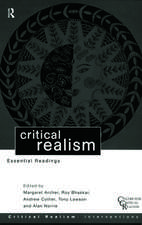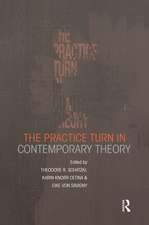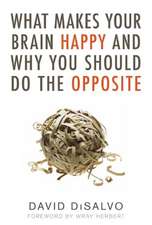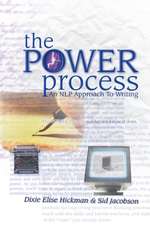Steps to an Ecology of Mind: Collected Essays in Anthropology, Psychiatry, Evolution, and Epistemology
Autor Gregory Batesonen Limba Engleză Paperback – 15 apr 2000
"This collection amounts to a retrospective exhibition of a working life. . . . Bateson has come to this position during a career that carried him not only into anthropology, for which he was first trained, but into psychiatry, genetics, and communication theory. . . . He . . . examines the nature of the mind, seeing it not as a nebulous something, somehow lodged somewhere in the body of each man, but as a network of interactions relating the individual with his society and his species and with the universe at large."—D. W. Harding, New York Review of Books
"[Bateson's] view of the world, of science, of culture, and of man is vast and challenging. His efforts at synthesis are tantalizingly and cryptically suggestive. . . .This is a book we should all read and ponder."—Roger Keesing, American Anthropologist
Preț: 174.20 lei
Nou
33.33€ • 34.80$ • 27.59£
Carte tipărită la comandă
Livrare economică 04-18 aprilie
Specificații
ISBN-10: 0226039056
Pagini: 565
Ilustrații: 5 line drawings
Dimensiuni: 140 x 216 x 36 mm
Greutate: 0.66 kg
Ediția:1
Editura: University of Chicago Press
Colecția University of Chicago Press
Locul publicării:United States
Public țintă
Academic/professional/technical: Undergraduate. Academic/professional/technical: Postgraduate. Academic/professional/technical: Research and professionalCuprins
Foreword, 1971
Introduction: The Science of Mind and Order
Part I: Metalogues
Metalogue: Why Do Things Get in a Muddle
Metalogue: Why Do Frenchmen?
Metalogue: About Games and Being Serious
Metalogue: How Much Do You Know?
Metalogue: Why Do Things Have Outlines?
Metalogue: Why a Swan?
Metalogue: What Is an Instinct?
Part II: Form and Pattern in Anthropology
Culture Contact and Schismogenesis
Experiments in Thinking about Observed Ethnological Material
Morale and National Character
Bali: The Value System of a Steady State
Style, Grace, and Information in Primitive Art
Comment on Part II
Part III: Form and Pathology in Relationship
Social Planning and the Concept of Deutero-Learning
A Theory of Play and Fantasy
Epidemiology of a Schizophrenia
Toward a Theory of Schizophrenia
The Group Dynamics of Schizophrenia
Minimal Requirements for a Theory of Schizophrenia
Double Bind, 1969
The Logical Categories of Learning and Communication
The Cybernetics of "Self": A Theory of Alcoholism
Comment on Part III
Part IV: Biology and Evolution
On Empty-Headedness among Biologists and State Boards of Education
The Role of Somatic Change in Evolution
Problems in Cetacean and Other Mammalian Communication
A Re-examination of "Bateson's Rule"
Comments on Part IV
Part V: Epistemology and Ecology
Cybernetic Explanation
Redundancy and Coding
Conscious Purpose versus Nature
Effects of Conscious Purpose on Human Adaptation
Form, Substance and Difference
Comment on Part V
Part VI: Crisis in the Ecology of Mind
Form Versailles to Cybernetics
Pathologies of Epistemology
The Roots of Ecological Crisis
Ecology and Flexibility in Urban Civilization
Index
Descriere
Gregory Bateson was a philosopher, anthropologist, photographer, naturalist, and poet, as well as the husband and collaborator of Margaret Mead. With a new foreword by his daughter Mary Katherine Bateson, this classic anthology of his major work will continue to delight and inform generations of readers.
"This collection amounts to a retrospective exhibition of a working life. . . . Bateson has come to this position during a career that carried him not only into anthropology, for which he was first trained, but into psychiatry, genetics, and communication theory. . . . He . . . examines the nature of the mind, seeing it not as a nebulous something, somehow lodged somewhere in the body of each man, but as a network of interactions relating the individual with his society and his species and with the universe at large."—D. W. Harding, New York Review of Books
"[Bateson's] view of the world, of science, of culture, and of man is vast and challenging. His efforts at synthesis are tantalizingly and cryptically suggestive. . . .This is a book we should all read and ponder."—Roger Keesing, American Anthropologist






















